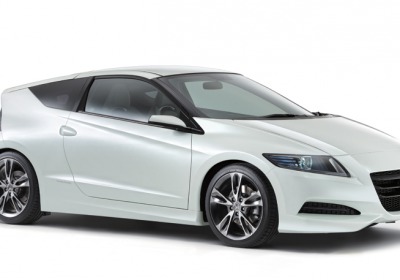Honda unveils 'near-production' CR-Z concept
Wed, 30 Sep 2009By Ben Pulman
First Official Pictures
30 September 2009 09:15
Honda has unveiled three concept cars that it will show at this month’s 2009 Tokyo motor show, and one of them is a thinly-veiled show car that previews the new hybrid CR-Z that will go into production in 2010.
It has. In 2007 Honda revealed a CR-Z concept at the Tokyo motor show. Then the project was given the green light, and now there’s a new CR-Z concept, imaginatively called the CR-Z Concept 2009. Like the concept that previewed the production Insight, the CR-Z on show at Tokyo is essentially production-ready, and only minor tweaks to the bumpers, lighters, wheels and interior trim are expected. The production car should be shown at the 2010 Detroit motor show in January, and then UK sales will start next summer. Prices should start at around £18k.
Details are still scarce, but the CR-Z isn't expected to use the Insight’s 1.3 IMA engine - instead expect a larger 1.5 petrol-hybrid, tuned for a sporting response. And to reflect the performance-orientated nature of the CR-Z, it will come with a six-speed manual gearbox – a world first for a hybrid, according to Honda. And the company is promising the production car will be 'exciting car to drive with agile handling'. It’s the world’s first sporting hybrid, and Honda hopes the CR-Z will widen the appeal of such technology.
The smaller of the two is the EV-N, a 2009 interpretation of Honda’s N360, a tiny 360cc microcar that was launched in the 1960s. Power comes from a battery pack, which is partially charged by solar cells on the roof, and inside the sub-3m shell are four seats. The EV-N is also just 1475mm wide. Concept car touches include lights in the grille, mirror and rear lamps that communicate with other road users and pedestrians.
The final car is the Skydeck, a concept that is designed to showcase Honda’s hybrid technology, and demonstrate how the powertrain can be fitted into different types of vehicle. It’s a six-seater MPV, with Lamborghini-style scissor doors up front, and more conventional sliding rear doors. All the major hybrid components are housed in the transmission tunnel, meaning no bulky batteries in the boot, a lower centre of gravity, and three rows of seats.
By Ben Pulman

